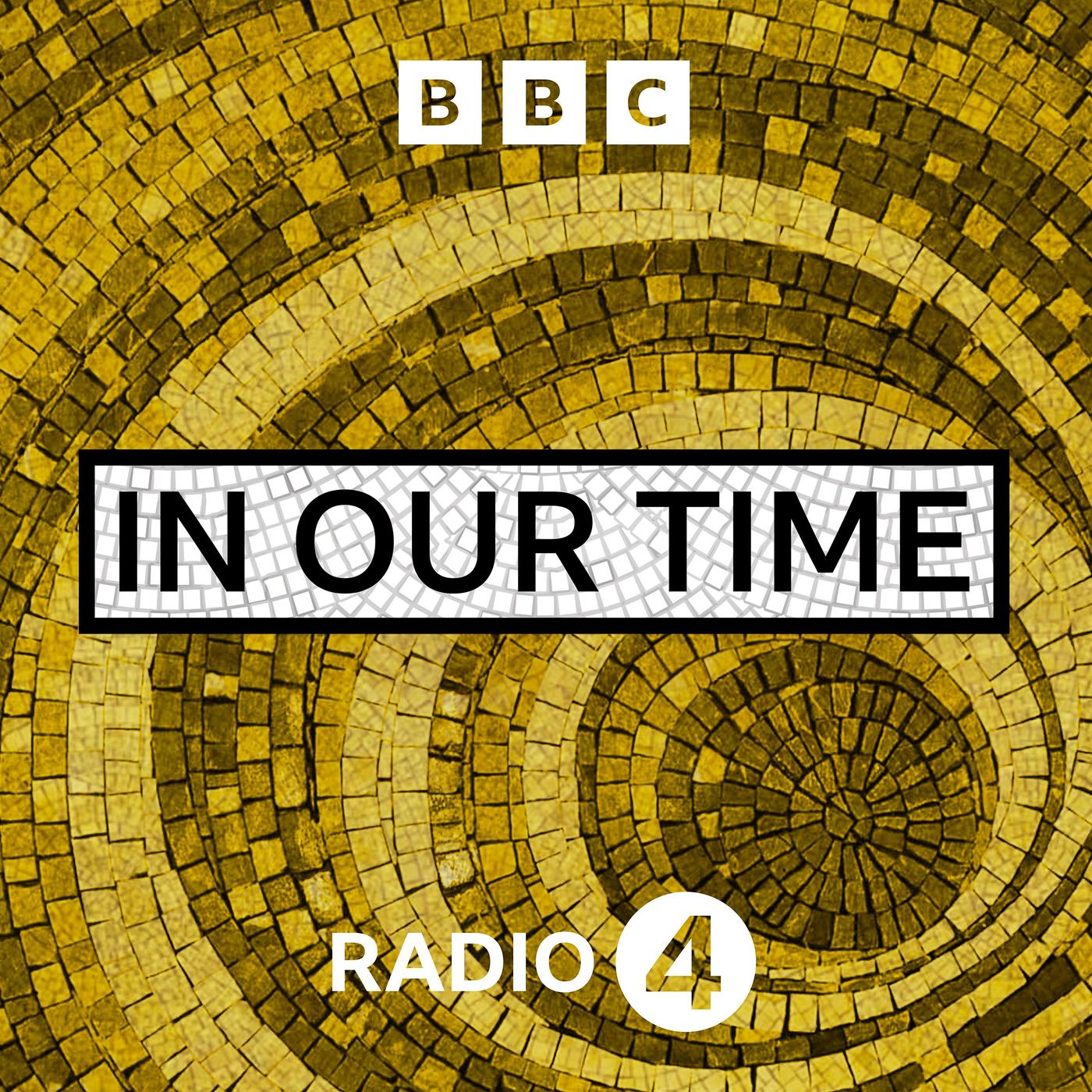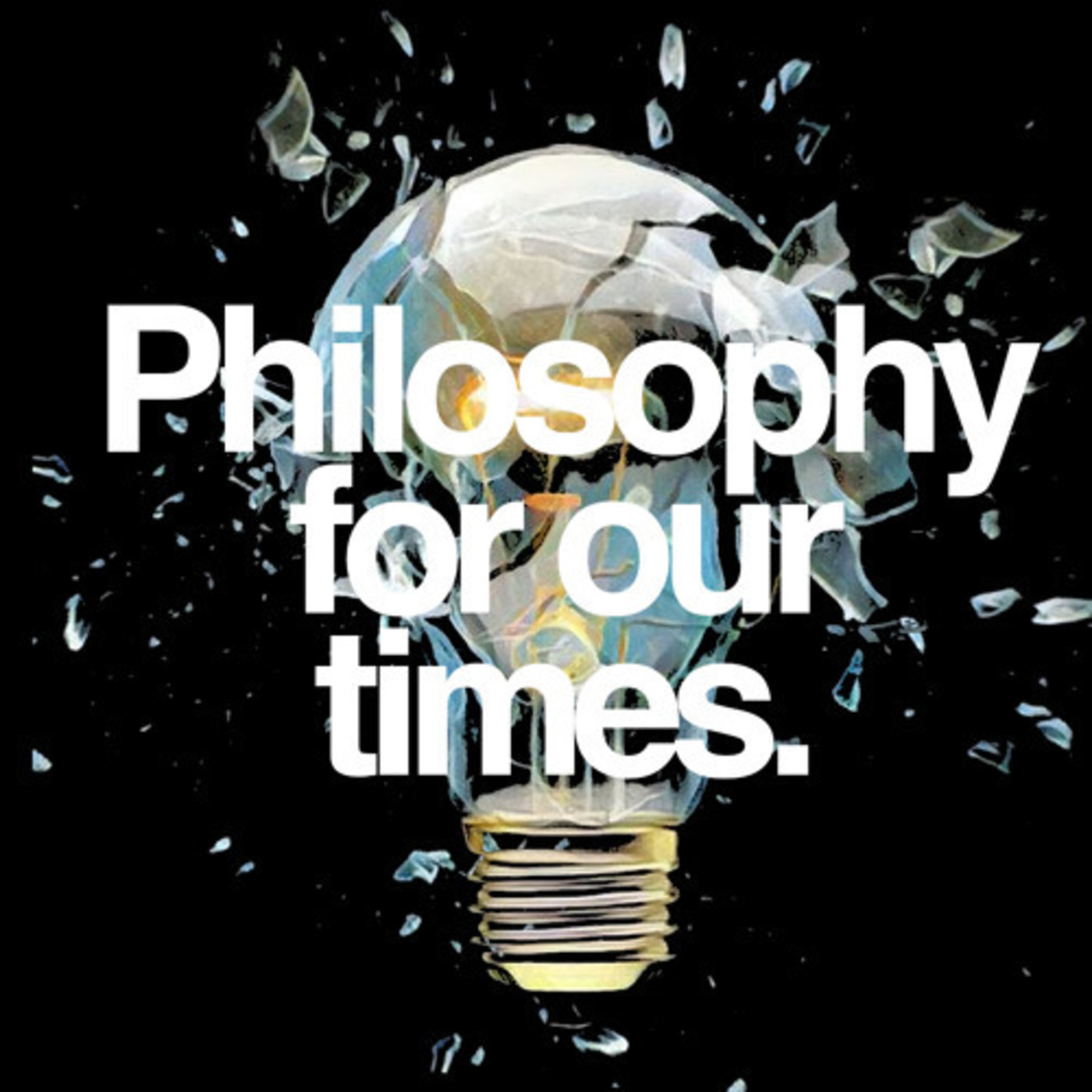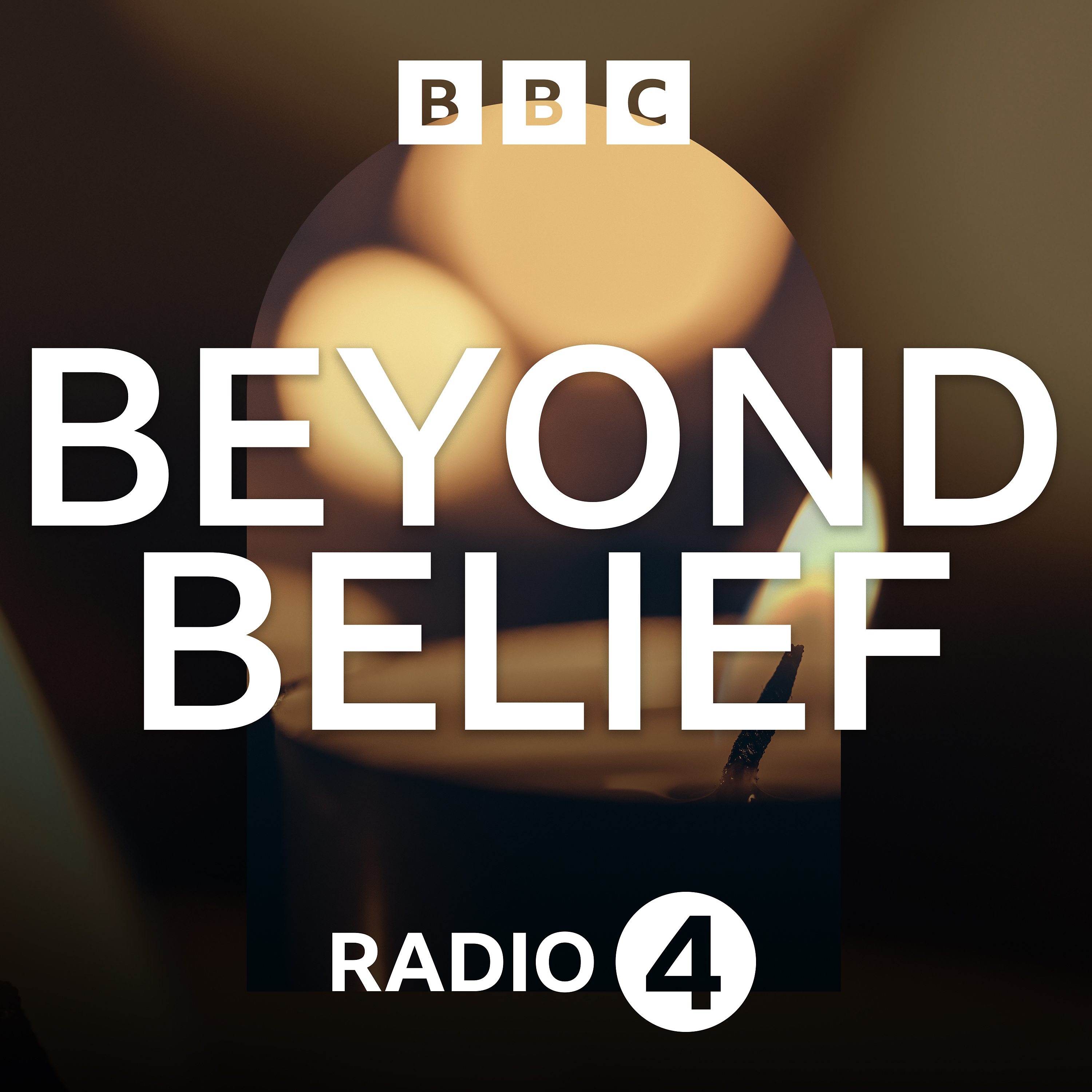Shows
 Donor DiariesTax Credits Can Save Lives | EP 22Send us a textImagine a world where living kidney donors are compensated for their life-saving gift. A world where a severe shortage of kidneys doesn't result in the preventable deaths of over a million Americans. In this riveting dialogue, we're joined by four non-directed kidney donors - Ned Brooks, Elaine Perlman, Dr. Matt Harmody, and Cody Maynard who are the founding members of the Coalition to Modify NOTA. This team will help us uncover the implications of the National Organ Transplant Act (NOTA) of 1984. Together, they propose a life-altering solution that could end the kidney transplant w...2023-12-1230 min
Donor DiariesTax Credits Can Save Lives | EP 22Send us a textImagine a world where living kidney donors are compensated for their life-saving gift. A world where a severe shortage of kidneys doesn't result in the preventable deaths of over a million Americans. In this riveting dialogue, we're joined by four non-directed kidney donors - Ned Brooks, Elaine Perlman, Dr. Matt Harmody, and Cody Maynard who are the founding members of the Coalition to Modify NOTA. This team will help us uncover the implications of the National Organ Transplant Act (NOTA) of 1984. Together, they propose a life-altering solution that could end the kidney transplant w...2023-12-1230 min The ValmyUtilitarianism Podcast: In Our Time Episode: UtilitarianismRelease date: 2015-06-11Get Podcast Transcript →powered by Listen411 - fast audio-to-text and summarizationA moral theory that emphasises ends over means, Utilitarianism holds that a good act is one that increases pleasure in the world and decreases pain. The tradition flourished in the eighteenth and nineteenth centuries with Jeremy Bentham and John Stuart Mill, and has antecedents in ancient philosophy. According to Bentham, happiness is the means for assessing the utility of an act, declaring "it is the greatest happiness of the greatest nu...2020-08-2543 min
The ValmyUtilitarianism Podcast: In Our Time Episode: UtilitarianismRelease date: 2015-06-11Get Podcast Transcript →powered by Listen411 - fast audio-to-text and summarizationA moral theory that emphasises ends over means, Utilitarianism holds that a good act is one that increases pleasure in the world and decreases pain. The tradition flourished in the eighteenth and nineteenth centuries with Jeremy Bentham and John Stuart Mill, and has antecedents in ancient philosophy. According to Bentham, happiness is the means for assessing the utility of an act, declaring "it is the greatest happiness of the greatest nu...2020-08-2543 min Philosophy For Our TimesAfter Evolution | Oliver Scott Curry, Daniel Everett, Janet Radcliffe RichardsLooking for a link we mentioned? It's here: https://linktr.ee/philosophyforourtimesIn 1859, Charles Darwin changed the course of history for ever by publishing On the Origin of Species. In 1872 he published ‘The expression of the emotions in man and animals.’ Which didn’t rock the boat quite so much, but it continues to be a source of controversy in our ongoing scientific debates on evolution, and specifically, how it relates to human psychology. Can evolution explain cultural and social differences? Or do we need something new? Julian Baggini explores the limits of evolution with philosopher Janet Radclif...2018-05-0130 min
Philosophy For Our TimesAfter Evolution | Oliver Scott Curry, Daniel Everett, Janet Radcliffe RichardsLooking for a link we mentioned? It's here: https://linktr.ee/philosophyforourtimesIn 1859, Charles Darwin changed the course of history for ever by publishing On the Origin of Species. In 1872 he published ‘The expression of the emotions in man and animals.’ Which didn’t rock the boat quite so much, but it continues to be a source of controversy in our ongoing scientific debates on evolution, and specifically, how it relates to human psychology. Can evolution explain cultural and social differences? Or do we need something new? Julian Baggini explores the limits of evolution with philosopher Janet Radclif...2018-05-0130 min Philosophy For Our TimesAfter Evolution | Oliver Scott Curry, Daniel Everett, Janet Radcliffe RichardsLooking for a link we mentioned? It's here: https://linktr.ee/philosophyforourtimesIn 1859, Charles Darwin changed the course of history for ever by publishing On the Origin of Species. In 1872 he published ‘The expression of the emotions in man and animals.’ Which didn’t rock the boat quite so much, but it continues to be a source of controversy in our ongoing scientific debates on evolution, and specifically, how it relates to human psychology. Can evolution explain cultural and social differences? Or do we need something new? Julian Baggini explores the limits of evolution with philosopher Janet Radclif...2018-05-0130 min
Philosophy For Our TimesAfter Evolution | Oliver Scott Curry, Daniel Everett, Janet Radcliffe RichardsLooking for a link we mentioned? It's here: https://linktr.ee/philosophyforourtimesIn 1859, Charles Darwin changed the course of history for ever by publishing On the Origin of Species. In 1872 he published ‘The expression of the emotions in man and animals.’ Which didn’t rock the boat quite so much, but it continues to be a source of controversy in our ongoing scientific debates on evolution, and specifically, how it relates to human psychology. Can evolution explain cultural and social differences? Or do we need something new? Julian Baggini explores the limits of evolution with philosopher Janet Radclif...2018-05-0130 min In Our TimeUtilitarianismA moral theory that emphasises ends over means, Utilitarianism holds that a good act is one that increases pleasure in the world and decreases pain. The tradition flourished in the eighteenth and nineteenth centuries with Jeremy Bentham and John Stuart Mill, and has antecedents in ancient philosophy. According to Bentham, happiness is the means for assessing the utility of an act, declaring "it is the greatest happiness of the greatest number that is the measure of right and wrong." Mill and others went on to refine and challenge Bentham's views and to defend them from critics such as Thomas...2015-06-1143 min
In Our TimeUtilitarianismA moral theory that emphasises ends over means, Utilitarianism holds that a good act is one that increases pleasure in the world and decreases pain. The tradition flourished in the eighteenth and nineteenth centuries with Jeremy Bentham and John Stuart Mill, and has antecedents in ancient philosophy. According to Bentham, happiness is the means for assessing the utility of an act, declaring "it is the greatest happiness of the greatest number that is the measure of right and wrong." Mill and others went on to refine and challenge Bentham's views and to defend them from critics such as Thomas...2015-06-1143 min RSDS RADIO SOCIETÀ DEI SOGNIUtilitarianismA moral theory that emphasises ends over means, Utilitarianism holds that a good act is one that increases pleasure in the world and decreases pain. The tradition flourished in the eighteenth and nineteenth centuries with Jeremy Bentham and John Stuart Mill, and has antecedents in ancient philosophy. According to Bentham, happiness is the means for assessing the utility of an act, declaring "it is the greatest happiness of the greatest number that is the measure of right and wrong." Mill and others went on to refine and challenge Bentham's views and to defend them from critics such as Thomas Carlyle...2015-06-1144 min
RSDS RADIO SOCIETÀ DEI SOGNIUtilitarianismA moral theory that emphasises ends over means, Utilitarianism holds that a good act is one that increases pleasure in the world and decreases pain. The tradition flourished in the eighteenth and nineteenth centuries with Jeremy Bentham and John Stuart Mill, and has antecedents in ancient philosophy. According to Bentham, happiness is the means for assessing the utility of an act, declaring "it is the greatest happiness of the greatest number that is the measure of right and wrong." Mill and others went on to refine and challenge Bentham's views and to defend them from critics such as Thomas Carlyle...2015-06-1144 min In Our TimeUtilitarianismA moral theory that emphasises ends over means, Utilitarianism holds that a good act is one that increases pleasure in the world and decreases pain. The tradition flourished in the eighteenth and nineteenth centuries with Jeremy Bentham and John Stuart Mill, and has antecedents in ancient philosophy. According to Bentham, happiness is the means for assessing the utility of an act, declaring "it is the greatest happiness of the greatest number that is the measure of right and wrong." Mill and others went on to refine and challenge Bentham's views and to defend them from critics such as Thomas Carlyle...2015-06-1143 min
In Our TimeUtilitarianismA moral theory that emphasises ends over means, Utilitarianism holds that a good act is one that increases pleasure in the world and decreases pain. The tradition flourished in the eighteenth and nineteenth centuries with Jeremy Bentham and John Stuart Mill, and has antecedents in ancient philosophy. According to Bentham, happiness is the means for assessing the utility of an act, declaring "it is the greatest happiness of the greatest number that is the measure of right and wrong." Mill and others went on to refine and challenge Bentham's views and to defend them from critics such as Thomas Carlyle...2015-06-1143 min In Our Time: PhilosophyUtilitarianismA moral theory that emphasises ends over means, Utilitarianism holds that a good act is one that increases pleasure in the world and decreases pain. The tradition flourished in the eighteenth and nineteenth centuries with Jeremy Bentham and John Stuart Mill, and has antecedents in ancient philosophy. According to Bentham, happiness is the means for assessing the utility of an act, declaring "it is the greatest happiness of the greatest number that is the measure of right and wrong." Mill and others went on to refine and challenge Bentham's views and to defend them from critics such as Thomas...2015-06-1143 min
In Our Time: PhilosophyUtilitarianismA moral theory that emphasises ends over means, Utilitarianism holds that a good act is one that increases pleasure in the world and decreases pain. The tradition flourished in the eighteenth and nineteenth centuries with Jeremy Bentham and John Stuart Mill, and has antecedents in ancient philosophy. According to Bentham, happiness is the means for assessing the utility of an act, declaring "it is the greatest happiness of the greatest number that is the measure of right and wrong." Mill and others went on to refine and challenge Bentham's views and to defend them from critics such as Thomas...2015-06-1143 min Practical Ethics BitesThe ethics of sexualityProfessor Janet Radcliffe Richards argues that homosexuality is natural, and that what is natural can be neither good nor bad.2014-11-0417 min
Practical Ethics BitesThe ethics of sexualityProfessor Janet Radcliffe Richards argues that homosexuality is natural, and that what is natural can be neither good nor bad.2014-11-0417 min The Philosopher's ArmsSex EqualityPints and philosophical problems with Matthew Sweet. Each week the programme examines a knotty philosophical issue: this week, sex equality and pay. Should we expect women to make up 50% of senior positions and, if they do not, is that evidence of discrimination? In the pub for this episode is the philosopher Janet Radcliffe Richards.
Producer: David Edmonds.2014-10-0627 min
The Philosopher's ArmsSex EqualityPints and philosophical problems with Matthew Sweet. Each week the programme examines a knotty philosophical issue: this week, sex equality and pay. Should we expect women to make up 50% of senior positions and, if they do not, is that evidence of discrimination? In the pub for this episode is the philosopher Janet Radcliffe Richards.
Producer: David Edmonds.2014-10-0627 min Beyond BeliefOrgan DonationBeyond Belief debates the place of religion and faith in today's complex world. Ernie Rea is joined by a panel to discuss how religious beliefs and traditions affect our values and perspectives.Three people die every day in need of an organ transplant while only 31% of people in the UK have joined the Organ Donor Register. Technological advancements mean there are ever more advanced ways of successfully transplanting organs but society remains divided over solutions along ethical and religious lines. Last month the Welsh Assembly became the first UK country to introduce a system where individuals will...2013-08-1227 min
Beyond BeliefOrgan DonationBeyond Belief debates the place of religion and faith in today's complex world. Ernie Rea is joined by a panel to discuss how religious beliefs and traditions affect our values and perspectives.Three people die every day in need of an organ transplant while only 31% of people in the UK have joined the Organ Donor Register. Technological advancements mean there are ever more advanced ways of successfully transplanting organs but society remains divided over solutions along ethical and religious lines. Last month the Welsh Assembly became the first UK country to introduce a system where individuals will...2013-08-1227 min Science and Religious Conflict ConferenceIs Religion Adaptive? Integrating Cognition and FunctionProfessor Robin Dunbar (Oxford) gives the first presentation for the Science and Religious Conflict Conference. The commentator is Professor Janet Radcliffe-Richards (Oxford).2010-06-0756 min
Science and Religious Conflict ConferenceIs Religion Adaptive? Integrating Cognition and FunctionProfessor Robin Dunbar (Oxford) gives the first presentation for the Science and Religious Conflict Conference. The commentator is Professor Janet Radcliffe-Richards (Oxford).2010-06-0756 min Philosophy and the Human Situation - AudioTaking StockBioethicist Janet Radcliffe Richards gives a talk entitled 'Taking Stock' focusing on the definition of philosophy and problems surrounding study of the subject2009-06-2300 min
Philosophy and the Human Situation - AudioTaking StockBioethicist Janet Radcliffe Richards gives a talk entitled 'Taking Stock' focusing on the definition of philosophy and problems surrounding study of the subject2009-06-2300 min Philosophy and the Human SituationTaking StockBioethicist Janet Radcliffe Richards gives a talk entitled 'Taking Stock' focusing on the definition of philosophy and problems surrounding study of the subject2009-06-2315 min
Philosophy and the Human SituationTaking StockBioethicist Janet Radcliffe Richards gives a talk entitled 'Taking Stock' focusing on the definition of philosophy and problems surrounding study of the subject2009-06-2315 min Philosophy and the Human Situation - AudioTranscript -- Taking StockTranscript -- Bioethicist Janet Radcliffe Richards gives a talk entitled 'Taking Stock' focusing on the definition of philosophy and problems surrounding study of the subject2009-06-2341 min
Philosophy and the Human Situation - AudioTranscript -- Taking StockTranscript -- Bioethicist Janet Radcliffe Richards gives a talk entitled 'Taking Stock' focusing on the definition of philosophy and problems surrounding study of the subject2009-06-2341 min Philosophy BitesJanet Radcliffe Richards on Men and Women's NaturesAre men and women different by nature? And if so, what follows? Janet Radcliffe Richards, author of The Sceptical Feminist and Human Nature After Darwin, examines questions about human nature, focusing on John Stuart Mill's important book The Subjection of Women. David Edmonds is the interviewer for this episode of Philosophy Bites.2008-04-0619 min
Philosophy BitesJanet Radcliffe Richards on Men and Women's NaturesAre men and women different by nature? And if so, what follows? Janet Radcliffe Richards, author of The Sceptical Feminist and Human Nature After Darwin, examines questions about human nature, focusing on John Stuart Mill's important book The Subjection of Women. David Edmonds is the interviewer for this episode of Philosophy Bites.2008-04-0619 min Ethics Bites - AudioOrgan TransplantsShould we allow people to make money from organ transplants? Ethics Bites talked to Janet Radcliffe Richards about the issue. Find out more about Janet, and organ transplants, at www.open2.net/ethicsbites.2008-03-2600 min
Ethics Bites - AudioOrgan TransplantsShould we allow people to make money from organ transplants? Ethics Bites talked to Janet Radcliffe Richards about the issue. Find out more about Janet, and organ transplants, at www.open2.net/ethicsbites.2008-03-2600 min Ethics Bites - AudioTranscript -- Organ TransplantsTranscript -- Should we allow people to make money from organ transplants? Ethics Bites talked to Janet Radcliffe Richards about the issue. Find out more about Janet, and organ transplants, at www.open2.net/ethicsbites.2008-03-2600 min
Ethics Bites - AudioTranscript -- Organ TransplantsTranscript -- Should we allow people to make money from organ transplants? Ethics Bites talked to Janet Radcliffe Richards about the issue. Find out more about Janet, and organ transplants, at www.open2.net/ethicsbites.2008-03-2600 min In Our TimeMillMelvyn Bragg and guests discuss the great nineteenth century political philosopher John Stuart Mill. He believed that, 'The true philosophy is the marriage of poetry and logic'. He was one of the first thinkers to argue that a social theory must engage with ideas of culture and the internal life. He used Wordsworth to inform his social theory, he was a proto feminist and his treatise On Liberty is one of the sacred texts of liberalism. J S Mill believed that action was the natural articulation of thought. He battled throughout his life for social reform and individual freedom...2006-05-1842 min
In Our TimeMillMelvyn Bragg and guests discuss the great nineteenth century political philosopher John Stuart Mill. He believed that, 'The true philosophy is the marriage of poetry and logic'. He was one of the first thinkers to argue that a social theory must engage with ideas of culture and the internal life. He used Wordsworth to inform his social theory, he was a proto feminist and his treatise On Liberty is one of the sacred texts of liberalism. J S Mill believed that action was the natural articulation of thought. He battled throughout his life for social reform and individual freedom...2006-05-1842 min In Our Time: PhilosophyMillMelvyn Bragg and guests discuss the great nineteenth century political philosopher John Stuart Mill. He believed that, 'The true philosophy is the marriage of poetry and logic'. He was one of the first thinkers to argue that a social theory must engage with ideas of culture and the internal life. He used Wordsworth to inform his social theory, he was a proto feminist and his treatise On Liberty is one of the sacred texts of liberalism. J S Mill believed that action was the natural articulation of thought. He battled throughout his life for social reform and individual freedom...2006-05-1842 min
In Our Time: PhilosophyMillMelvyn Bragg and guests discuss the great nineteenth century political philosopher John Stuart Mill. He believed that, 'The true philosophy is the marriage of poetry and logic'. He was one of the first thinkers to argue that a social theory must engage with ideas of culture and the internal life. He used Wordsworth to inform his social theory, he was a proto feminist and his treatise On Liberty is one of the sacred texts of liberalism. J S Mill believed that action was the natural articulation of thought. He battled throughout his life for social reform and individual freedom...2006-05-1842 min In Our Time: ScienceHuman NatureMelvyn Bragg and guests discuss the vexing issue of human nature. Some argue that we are born as blank slates and our natures are defined by upbringing, experience, culture and the ideas of our time. Others believe that human nature is innate and pre-destined, regardless of time and place. Is there really such a thing as human nature? And, if there is, can it be changed? Does the truth about human nature mean we should stop striving for progress, or should it give us cause for optimism? How important is the human race in the wider scheme of things...2002-11-0742 min
In Our Time: ScienceHuman NatureMelvyn Bragg and guests discuss the vexing issue of human nature. Some argue that we are born as blank slates and our natures are defined by upbringing, experience, culture and the ideas of our time. Others believe that human nature is innate and pre-destined, regardless of time and place. Is there really such a thing as human nature? And, if there is, can it be changed? Does the truth about human nature mean we should stop striving for progress, or should it give us cause for optimism? How important is the human race in the wider scheme of things...2002-11-0742 min In Our TimeHuman NatureMelvyn Bragg and guests discuss the vexing issue of human nature. Some argue that we are born as blank slates and our natures are defined by upbringing, experience, culture and the ideas of our time. Others believe that human nature is innate and pre-destined, regardless of time and place. Is there really such a thing as human nature? And, if there is, can it be changed? Does the truth about human nature mean we should stop striving for progress, or should it give us cause for optimism? How important is the human race in the wider scheme of things...2002-11-0742 min
In Our TimeHuman NatureMelvyn Bragg and guests discuss the vexing issue of human nature. Some argue that we are born as blank slates and our natures are defined by upbringing, experience, culture and the ideas of our time. Others believe that human nature is innate and pre-destined, regardless of time and place. Is there really such a thing as human nature? And, if there is, can it be changed? Does the truth about human nature mean we should stop striving for progress, or should it give us cause for optimism? How important is the human race in the wider scheme of things...2002-11-0742 min In Our Time: PhilosophyThe Examined LifeMelvyn Bragg and guests discuss self-examination. Socrates, the Greek philosopher of the 4th century BC, famously declared that "The unexamined life is not worth living." His drive towards rigorous self-enquiry and his uncompromising questioning of assumptions laid firm foundations for the history of Western Philosophy. But these qualities did not make him popular in ancient Athens: Socrates was deemed to be a dangerous subversive for his crime, as he described it, of "asking questions and searching into myself and other men". In 399 BC Socrates was sentenced to death on the charge of being "an evil-doer and a curious person"...2002-05-0942 min
In Our Time: PhilosophyThe Examined LifeMelvyn Bragg and guests discuss self-examination. Socrates, the Greek philosopher of the 4th century BC, famously declared that "The unexamined life is not worth living." His drive towards rigorous self-enquiry and his uncompromising questioning of assumptions laid firm foundations for the history of Western Philosophy. But these qualities did not make him popular in ancient Athens: Socrates was deemed to be a dangerous subversive for his crime, as he described it, of "asking questions and searching into myself and other men". In 399 BC Socrates was sentenced to death on the charge of being "an evil-doer and a curious person"...2002-05-0942 min In Our TimeThe Examined LifeMelvyn Bragg and guests discuss self-examination. Socrates, the Greek philosopher of the 4th century BC, famously declared that "The unexamined life is not worth living." His drive towards rigorous self-enquiry and his uncompromising questioning of assumptions laid firm foundations for the history of Western Philosophy. But these qualities did not make him popular in ancient Athens: Socrates was deemed to be a dangerous subversive for his crime, as he described it, of "asking questions and searching into myself and other men". In 399 BC Socrates was sentenced to death on the charge of being "an evil-doer and a curious person"...2002-05-0942 min
In Our TimeThe Examined LifeMelvyn Bragg and guests discuss self-examination. Socrates, the Greek philosopher of the 4th century BC, famously declared that "The unexamined life is not worth living." His drive towards rigorous self-enquiry and his uncompromising questioning of assumptions laid firm foundations for the history of Western Philosophy. But these qualities did not make him popular in ancient Athens: Socrates was deemed to be a dangerous subversive for his crime, as he described it, of "asking questions and searching into myself and other men". In 399 BC Socrates was sentenced to death on the charge of being "an evil-doer and a curious person"...2002-05-0942 min In Our Time: ScienceEvolutionary PsychologyMelvyn Bragg and guests discuss Evolutionary Psychology. Richard Dawkins redefined human nature in 1976, when he wrote in The Selfish Gene: “They swarm in huge colonies, safe inside giant lumbering robots, sealed off from the outside world, communicating with it by tortuous indirect routes, manipulating it by remote control. They are in you and me; they created us body and mind; and their preservation is the ultimate rational of our existence…they go by the name of genes and we are their survival machines”. Potent ideas like this have given birth to a new discipline, ‘Evolutionary Psychology’: It claims that all of hum...2000-11-0228 min
In Our Time: ScienceEvolutionary PsychologyMelvyn Bragg and guests discuss Evolutionary Psychology. Richard Dawkins redefined human nature in 1976, when he wrote in The Selfish Gene: “They swarm in huge colonies, safe inside giant lumbering robots, sealed off from the outside world, communicating with it by tortuous indirect routes, manipulating it by remote control. They are in you and me; they created us body and mind; and their preservation is the ultimate rational of our existence…they go by the name of genes and we are their survival machines”. Potent ideas like this have given birth to a new discipline, ‘Evolutionary Psychology’: It claims that all of hum...2000-11-0228 min In Our TimeEvolutionary PsychologyMelvyn Bragg and guests discuss Evolutionary Psychology. Richard Dawkins redefined human nature in 1976, when he wrote in The Selfish Gene: “They swarm in huge colonies, safe inside giant lumbering robots, sealed off from the outside world, communicating with it by tortuous indirect routes, manipulating it by remote control. They are in you and me; they created us body and mind; and their preservation is the ultimate rational of our existence…they go by the name of genes and we are their survival machines”. Potent ideas like this have given birth to a new discipline, ‘Evolutionary Psychology’: It claims that all of hum...2000-11-0228 min
In Our TimeEvolutionary PsychologyMelvyn Bragg and guests discuss Evolutionary Psychology. Richard Dawkins redefined human nature in 1976, when he wrote in The Selfish Gene: “They swarm in huge colonies, safe inside giant lumbering robots, sealed off from the outside world, communicating with it by tortuous indirect routes, manipulating it by remote control. They are in you and me; they created us body and mind; and their preservation is the ultimate rational of our existence…they go by the name of genes and we are their survival machines”. Potent ideas like this have given birth to a new discipline, ‘Evolutionary Psychology’: It claims that all of hum...2000-11-0228 min